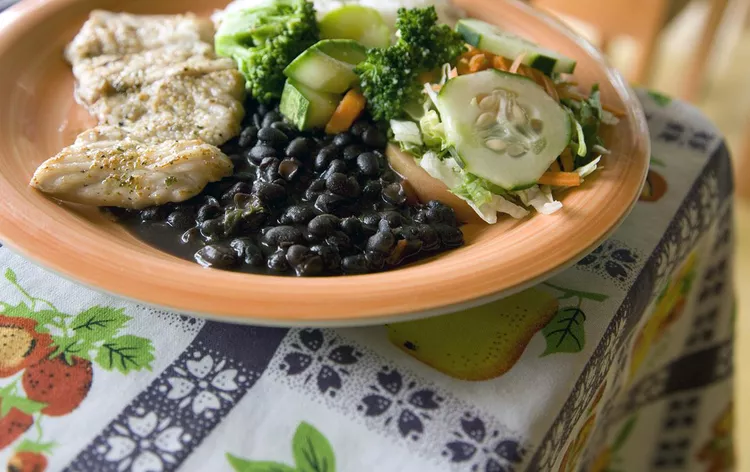Summary of Central American Cuisine
Some Central American food is extremely familiar, such as fried chicken in Guatemala and fruit smoothies in Costa Rica. Other meals might seem a bit on the exotic side, like fried palm flowers in El Salvador and stuffed yucca rolls in Panama. Yet other Central American recipes might seem downright startling, such as El Salvador’s sopa de patas. A lot of the dishes might have the same name but you should try them in each country. The recipes tend to be different.
So don’t be shy; have a taste of Central America cuisine! You will be pleasantly surprised.
Costa Rica
Address: Costa Rica
If you’re traveling to Costa Rica for the first time, you’re probably curious about Costa Rican food. Fortunately, food in Costa Rica isn’t that different from food in the United States with a few notable exceptions like chilera (a spicy dressing made with pickled onions, peppers, and other vegetables) and tres leches cake (a cake soaked in three kinds of milk).
Honduras

Address: Honduras
On the Caribbean coast or in the Bay Islands, seafood and anything made of coconut dominate Honduran cuisine. No travel taste test of Honduran food is complete without fresh fish, shrimp, lobster, or the endlessly versatile conch (caracol in Spanish). Moreover, there are other dishes with strong Mayan influences worth trying.
Panama

Address: Panama
Because of Panama’s diverse Spanish, American, Afro-Caribbean, and indigenous influences, Panamanian cuisine ranges from the familiar, like snow cones and tropical fruit, to the ultra-exotic, such as carimanola—a fried yucca roll stuffed with meat and boiled eggs. Seafood is prevalent, and snacks are delicious, especially if you buy them at a fonda. Consequently, the international influence is quite strong here, providing an interesting mix of the main cultures around the world.
Guatemala

Address: Guatemala
Guatemalan food and drink is primarily influenced by the country’s Mayan and Spanish cultures. Nowadays, international influences such as Chinese, American, and the vegetarian movement are also present in Guatemala’s cuisine. International cuisine is making a significant impact in Guatemalan dishes, and the resulting mix represents some of the most intriguing Central American cuisines. If you have the chance to try only one dish, make it pepian.
El Salvador

Address: El Salvador
El Salvador’s food and drink is particularly distinctive among the diverse cuisines of Central America as it blends just two major cultural influences: the indigenous and the Spanish. El Salvadoran food includes all sorts of stuffed delights, such as tamales, empanadas, pastelitos, and the ever-present pupusas. Therefore, you have to try them; they make them with just about anything you can think of.
Nicaragua

Address: Nicaragua
Nicaraguan cuisine reflects the diversity of its residents. It results from years of Spanish, Creole, Garifuna, and indigenous cultures merging into one. They all contribute to the flavors found in modern Nicaraguan food, which most travelers find delicious; additionally, it tends to be exceptionally inexpensive.
Belize

Address: Belize
When discussing diversity in Central American cuisine, Belize truly stands out as the ultimate melting pot of cultures, including Creole, Mayan, Garifuna, Spanish, British, Chinese, and American influences. Consequently, Belize’s food and drink are just as varied, encompassing everything from stew chicken to cassava bread, fry jack to Johnny cakes, and “Boil ups” to frothy seaweed drinks. If you ever get the chance, traditional Garifuna dishes are highly recommended.





